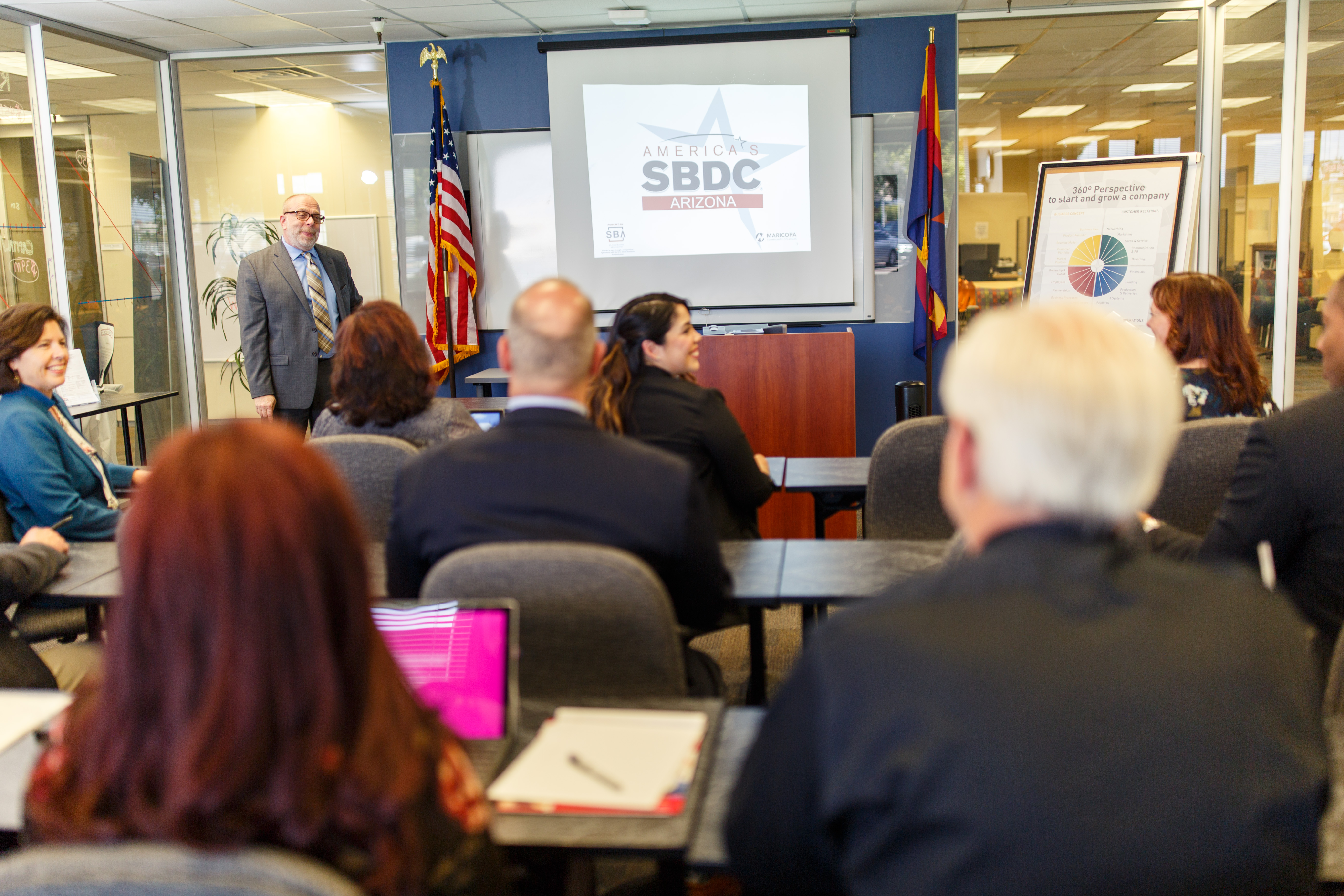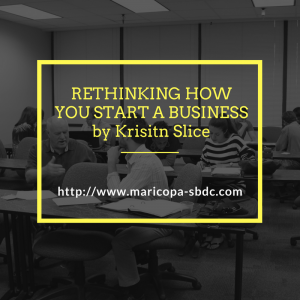In order to move entrepreneurship forward and strengthen our local economies, we need to think about how people start businesses. Business owners need to be creating businesses that are more effective from the beginning.
Today, business owners tend to start businesses with the following model:
They’ve had a long career out of building a specific skill set. Frustrated with the lack of flexibility, upward mobility, or the general culture of the organization they are in, they look for how they can give back and utilize their skills in a different way. So what’s next? Usually one of two things — either they go to somebody they know that is an entrepreneur (usually a family member) to ask about their experience. Or they reach out to a friend in the community who is a business owner.
In Phoenix, where most people are transplants, they usually reach out online looking for meet up groups that are an opportunity to connect with entrepreneurs to see what opportunity lies in front of them. So they attend a networking event and are immediately bombarded with messages about following their passion, how helping people means being a coach, or investing in a network marketing model.
Since most of these budding entrepreneurs start their business while still working a full job, they often keep it secret or separate from their current business life. Meaning they are left to their own devices and resources to start their business from scratch.
Now if this story doesn’t sound familiar or you find yourself arguing with me about its legitimacy, there are two things you should know. Today, women start businesses at three times the rate of men. Moreover, according to national statistics, the average entrepreneur is 42 years old.
The media often portrays an entrepreneur as a 20-year-old, white male in hoodie. Most resources that support entrepreneurship tend reflect this stereotype. As a result, there are not a lot of resources online for someone to ready to dive in. Often, they look at these images and don’t see anyone that looks like them. It should come as no surprise that while women are starting businesses at three times the rate of our male counterparts, they still struggle to build businesses and gather the business resources and acumen necessary to have a thriving business.
While programs that help gain entrepreneurial skills for high schoolers and college students are important, there are reasons the average entrepreneur is 42. Running a business does require a specific skill set. Most 42-year-olds have their children in a stable place, have some capital to invest in a business, and have gathered the skills and connections to make entrepreneurship option.
Many headlines have read about the value of entrepreneurship and growing local economies. In fact the majority of our jobs and our local economy come from small business owners. However, we have to shift the way we think about who these people are and how to help them in order to strengthen our economy today.
Re-thinking our business options
So how do we do that? First, we need to change how people perceive the average entrepreneur. The more we brought in our definition of entrepreneurship to include women, people of color, people starting businesses out of necessity, mom-and-pop shops, and tech startups, the more robust and thriving or ecosystem will become. We have to broaden the audience and then change the way we talk about starting a business.
Second, we have to redefine the steps to starting a business. There are hundreds of ways to start a business, Messages like following your passion or leveraging your own skill set have often limited women to non-scalable businesses or industries that women have traditionally thrived in according to gender stereotypes — education, helping others, healthcare, and coaching. Instead of focusing on who we are, we have to focus on the problem we are solving.
Research has proven that women are better at finding innovative solutions to everyday problems. Many successful entrepreneurs buy businesses, are part of a team, or develop a business that utilizes their strength in management and people skills in a field they are completely unfamiliar with. You can be passionate about solving a problem, building a team, and having the freedom for your family to have a flexible schedule. It doesn’t mean you have to turn your hobby into a business. There are other ways to find passion and fulfillment in business ownership. Whatever the method, we have to broaden our understanding and our language around what starting a business looks like.
Busting through myths about business ownership
Whenever we talk about building scalable businesses in the local economy and women, I often get pushback that women don’t want to grow scalable companies. When I talk to women about why that is the answer is often, “I don’t want to manage people”, “I don’t want to take away from my family”, or “I don’t know how”. Women aren’t limited by their desire to grow a scalable business; they are limited by the myths about business ownership.
The reality is building a business can mean more time with your family. Another myth that holds women back, is that you have to be a martyr to give to your passion. Making money is a good thing it, allows you to give back to your community or your passion projects. Finally, growing a team doesn’t mean more responsibility; it actually means less on your plate.
As I mentioned earlier, women are starting businesses at three times the rate of our male counterparts, so we don’t have to inspire these entrepreneurs to step up. We just have to change the culture and the way we talk about businesses and the resources we provide in order to unleash their true economic potential.





